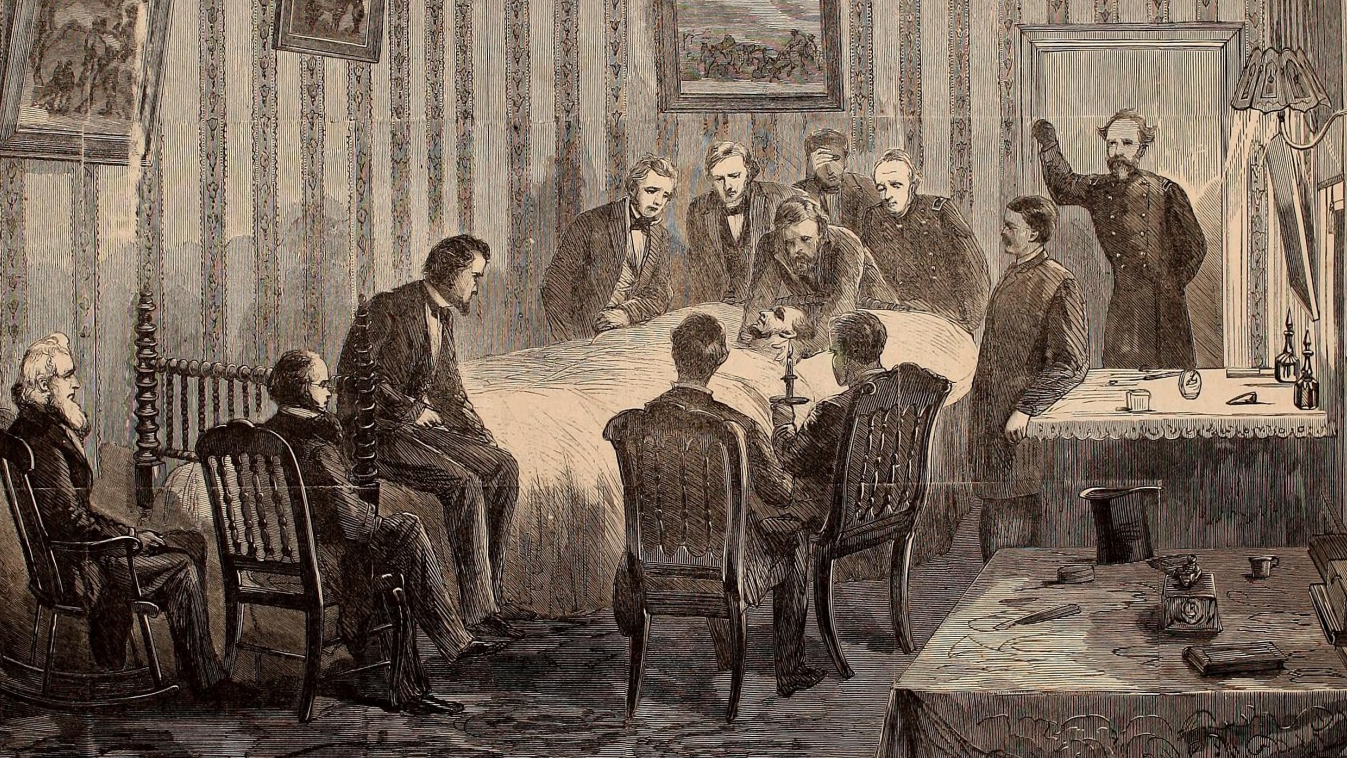Abraham Lincoln, one of the most renowned leaders in American history, met a tragic end on April 15, 1865. It was on this fateful day that the nation mourned the loss of a visionary president, whose dedication to preserving the Union during the tumultuous years of the American Civil War marked him as a luminary figure.
As part of his enduring legacy, Lincoln’s life was abruptly cut short when he was assassinated at Ford’s Theatre in Washington D.C. The president, seated in a private box attending a play, was struck by an assassin’s bullet fired by John Wilkes Booth. This unforeseen act of violence plunged the nation into deep sorrow, shattering hopes for a brighter future under Lincoln’s leadership.
Despite immediate medical attention, Lincoln succumbed to his injuries the following morning, succumbing to the gunshot wound that had pierced the back of his head. As news of his passing spread throughout the country, grief washed over the American people, collectively mourning the loss of a leader who had seen them through the darkest chapter of their history.
Lincoln’s assassination prompted a manhunt for John Wilkes Booth, who evaded capture for twelve days before being found and fatally shot by Union soldiers. The nation, still reeling from the shocking events surrounding Lincoln’s death, sought solace in reckoning with the aftermath and rebuilding a fractured nation.
The passing of Abraham Lincoln left an indelible mark on American history, forever etching his name into the annals of leadership and courage. His death solidified his status as a martyr for the cause he fiercely fought for – the preservation of the United States and the abolition of slavery.
To this day, the death of Abraham Lincoln continues to captivate the hearts and minds of individuals across the globe. His legacy as a visionary, emancipator, and unifier lives on, inspiring generations to strive for a world where Lincoln’s dreams of equality and justice become a reality. May we forever honor the memory of this remarkable leader, whose life was tragically cut short, while carrying his vision forward into the future.
More About : When Did Abraham Lincoln Die
Introduction (Approximately 100 words)
Abraham Lincoln, the 16th President of the United States, met an untimely demise on April 15, 1865. His assassination not only shook the nation to its core but also marked a turning point in American history. This article delves into the fateful events surrounding Lincoln’s death, exploring the timeline, circumstances, and impact of this monumental loss.
I. The Assassination (Approximately 150 words)
A. The Setting
– On the evening of April 14, 1865, Lincoln attended a play at Ford’s Theatre in Washington, D.C.
– The atmosphere was festive, with the Civil War recently coming to a victorious end for the Union.
B. John Wilkes Booth
– Booth, a Confederate sympathizer and well-known actor, carefully planned to assassinate multiple key figures in the government that evening.
– Around 10:15 PM, he made his way to the Presidential Box, where Lincoln was seated, and shot him in the back of the head.
II. The Aftermath (Approximately 200 words)
A. The Wound
– Lincoln was immediately rendered unconscious and slumped forward after the gunshot.
– His wife, Mary Todd Lincoln, and various onlookers realized the gravity of the situation.
B. Desperate Measures
– Doctors who were present quickly attended to the President, providing treatment on the spot.
– Due to the severity of the injury, Lincoln was deemed untransportable.
C. Final Moments
– Lincoln was carried to a nearby house, the Petersen House, where he was placed on a bed.
– Surrounded by his Cabinet, family, and supporters, he fought for his life for several hours before ultimately succumbing to his wound the following morning.
III. The Impact (Approximately 150 words)
A. National Mourning
– Lincoln’s death triggered widespread shock and grief throughout the United States.
– The nation plunged into mourning, with countless citizens attending memorials, funerals, and public displays of mourning.
B. Political Fallout
– Vice President Andrew Johnson succeeded Lincoln but faced immense challenges, from Reconstruction to healing a divided nation.
– The assassination catalyzed changes in security measures, forever altering how the President is protected.
C. Historical Significance
– Lincoln’s death solidified his place in history as an iconic figure.
– His leadership during the Civil War and his efforts to abolish slavery ensured his lasting legacy.
Conclusion (Approximately 50 words)
Abraham Lincoln’s death will forever be remembered as a tragic event that marked a turning point in American history. This article has provided an overview of the assassination, its immediate aftermath, and the profound impact it had on the nation. Lincoln’s legacy as an influential statesman endures to this day.
FAQs on When Did Abraham Lincoln Die
Q: When did Abraham Lincoln die?
A: Abraham Lincoln died on April 15, 1865.
Q: How old was Abraham Lincoln when he died?
A: Abraham Lincoln was 56 years old when he died.
Q: Where did Abraham Lincoln die?
A: Abraham Lincoln died at the Peterson House in Washington, D.C.
Q: What was the cause of Abraham Lincoln’s death?
A: Abraham Lincoln was assassinated by John Wilkes Booth, a Confederate sympathizer.
Q: Was Abraham Lincoln the first U.S. president to be assassinated?
A: Yes, Abraham Lincoln was the first U.S. president to be assassinated.
Q: Did Abraham Lincoln die instantly after the assassination?
A: No, Abraham Lincoln was shot late in the evening of April 14, 1865, and died the following morning.
Q: Who became president after Abraham Lincoln’s death?
A: Andrew Johnson became president after Abraham Lincoln’s death.
Q: Was Abraham Lincoln’s death mourned by the nation?
A: Yes, Abraham Lincoln’s death was mourned by the entire nation, and his funeral procession was attended by thousands of people.
Q: Is there a national holiday in memory of Abraham Lincoln’s death?
A: No, there is no national holiday specifically dedicated to the memory of Abraham Lincoln’s death, but his birthday, February 12, is a state holiday in several U.S. states.
Q: Where is Abraham Lincoln buried?
A: Abraham Lincoln is buried in Oak Ridge Cemetery in Springfield, Illinois.




